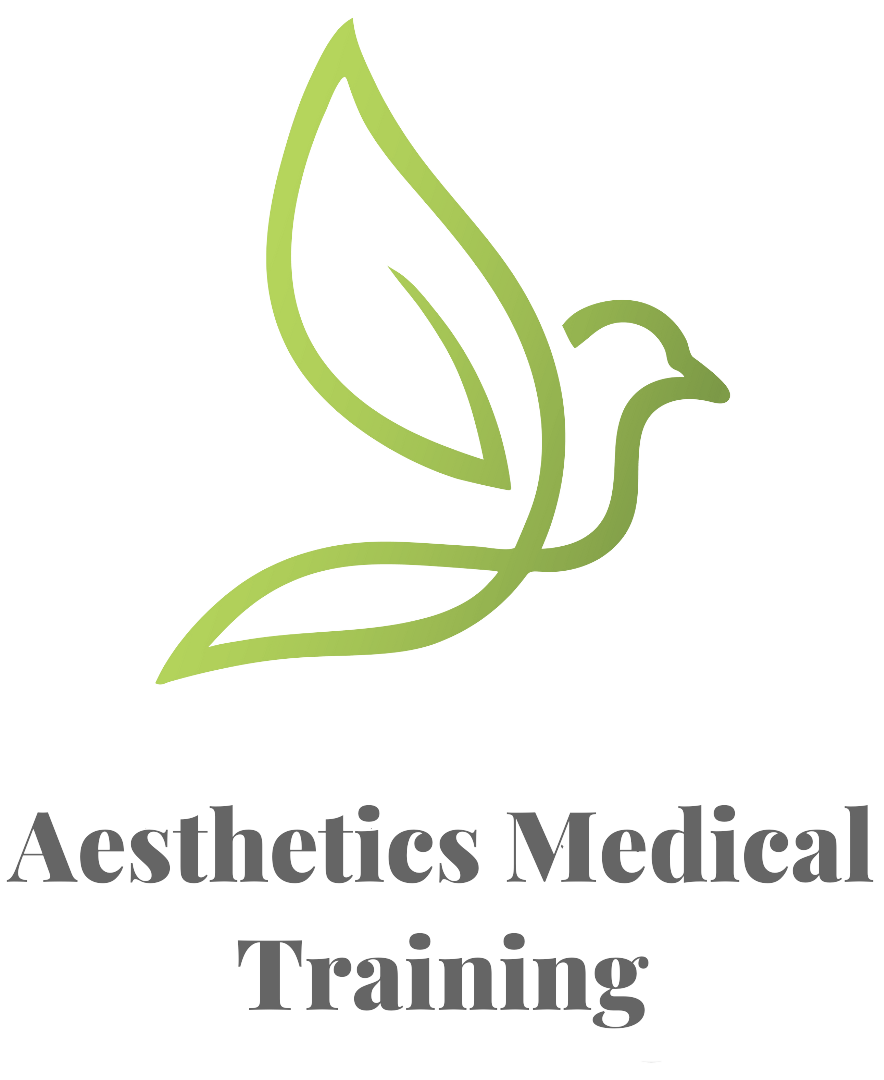In the evolving landscape of healthcare and beauty, a new trend is making waves: the increasing significance of Aesthetic Registered Nurses (ARNs) in the cosmetic industry. These healthcare professionals are redefining skincare standards, combining medical knowledge with aesthetic expertise to offer a range of non-surgical cosmetic procedures.
This article delves into the burgeoning field of aesthetic nursing, highlighting the transformative journey of nurses from traditional care roles to the forefront of cosmetic medicine.
In this article, we explore:
- Essential Nursing Skills and Qualifications for Nursing
- Job Description and Day-to-Day Activities in Aesthetic Nursing
- Navigating the Career Path for Aesthetic Nurses
Essential Nursing Skills and Qualifications for Aesthetic Nursing Jobs
The journey to becoming an Aesthetic Registered Nurse is marked by rigorous education and specialized training, equipping nurses with the necessary skills to excel in the rapidly growing field of aesthetic medicine. This educational pathway ensures that ARNs can provide high-quality care and cosmetic services, keeping pace with advancements in technology and patient expectations.
How to Become an Aesthetic Nurse:
- Nursing Degree: Aspiring aesthetic nurses begin with foundational nursing education, typically earning a Bachelor of Science in Nursing (BSN). This four-year degree covers essential medical knowledge and clinical skills.
- Licensure: After obtaining their nursing degree, candidates must pass the NCLEX-RN exam to become a licensed Registered Nurse (RN). This national exam assesses a candidate’s readiness to provide safe and effective patient care.
- Specialized Training: Post-licensure, medical professionals seeking to specialize in aesthetics must undergo additional training and nursing programs. This includes hands-on training in dermal fillers, Botox injections, laser treatments, and non-surgical body contouring.
- Certification Courses: Obtaining an advanced certification in aesthetic nursing, such as the Certified Aesthetic Nurse Specialist (CANS) credential, is a critical step. This certification program, recognized by professional organizations such as the International Society of Plastic and Aesthetic Nurses, underscores a nurse’s expertise in aesthetic procedures. To be eligible, nurses typically need a certain number of practice hours in aesthetic nursing and must pass a comprehensive exam.
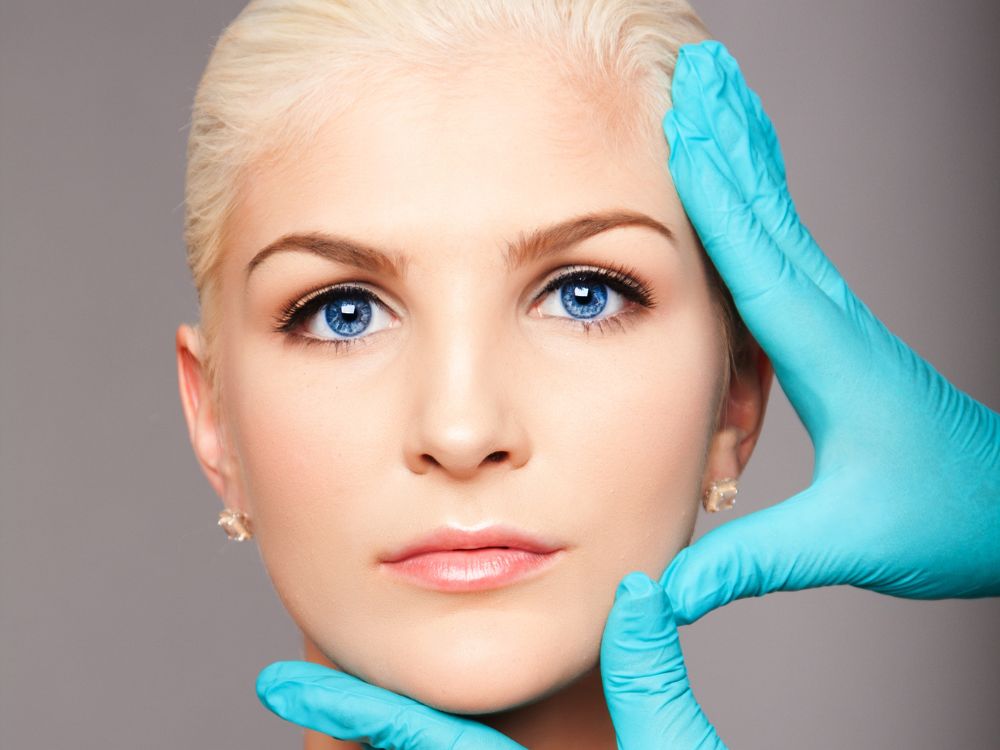
Essential Personal and Professional Skills for Aesthetic Nursing Jobs:
The role of an aesthetic nurse demands a unique blend of basic nursing skills:
- Detail-oriented: Precision is crucial, especially when performing injections and other skin treatments.
- Artistic vision: Understanding of aesthetics to achieve natural-looking and pleasing results for patients.
- Interpersonal skills: Excellent communication is vital for understanding patient needs and effective patient consultations.
Additional Reading: You should also take a look at Empowering Healthcare Professionals: Comprehensive Facial Aesthetics Training at AMT.
An aesthetic nursing job requires rigorous aesthetic nurse training and certification, as well as a personal commitment to ongoing education and hands-on experience. With the aesthetic industry’s expansion, professionals who continually update their skills and knowledge can expect rewarding opportunities and career growth. This field uniquely combines medical knowledge with artistic skill, offering a fulfilling path for those passionate about both patient care and cosmetic enhancement.
Importance of Continuous Education
The field of aesthetic nursing is ever-evolving, with new techniques, products, and technologies constantly emerging. Ongoing education is crucial for ARNs to stay at the forefront of the industry. This includes:
- Regular Training Updates: Engaging in ongoing training programs helps nurses stay updated on the latest cosmetic procedures and safety protocols.
- Professional Development: Attending workshops, conferences, and seminars offered by aesthetic organizations enhances professional growth and networking opportunities.
- Research and Evidence-Based Practice: Keeping abreast of current research and clinical guidelines ensures that ARNs provide the most effective treatments based on the latest evidence.
The comprehensive education and training of ARNs not only elevate the standard of patient care but also expand their career opportunities. ARNs can find employment in various settings, including dermatology offices, plastic surgery clinics, aesthetic clinics, and med spas. The demand for aesthetic treatments has led to a positive job outlook for these professionals, with the Bureau of Labor Statistics highlighting a continued growth in healthcare occupations.
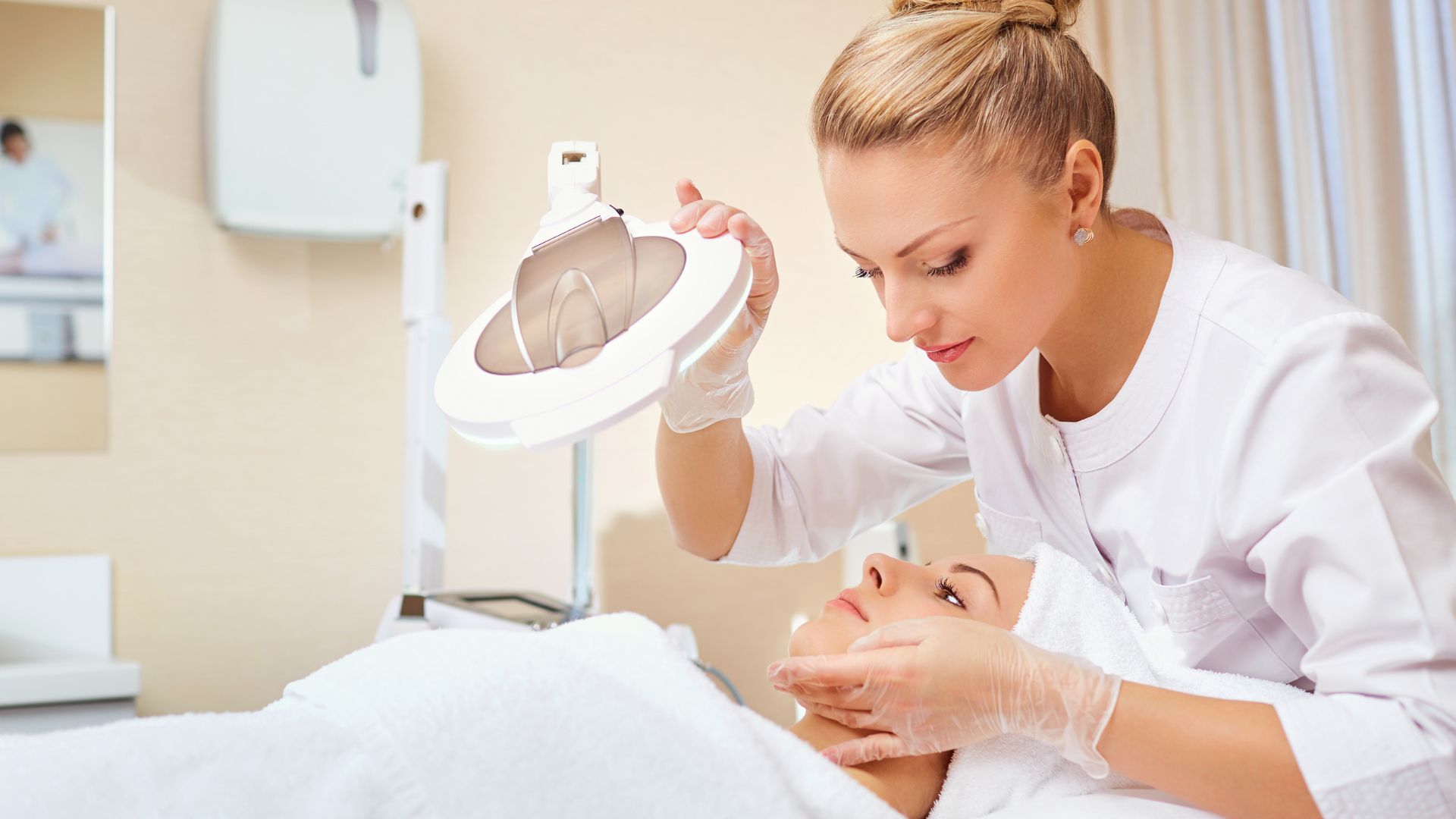
Job Description and Day-to-Day Activities in Aesthetic Nursing
Aesthetic nursing jobs encompass a variety of roles and responsibilities that blend clinical expertise with an artistic touch. Here’s a closer look at what these specialized nurses do on a daily basis:
Common Procedures Performed by Aesthetic Nurses
- Cosmetic Injectables: Aesthetic nurse injectors commonly administer Botox and dermal fillers to reduce wrinkles and enhance facial contours. According to the American Society of Plastic Surgeons, these injectable treatments are among the top non-surgical medical procedures, with millions performed annually.
- Laser Treatments: These include laser hair removal, skin resurfacing, and tattoo removal, which require a nurse to operate specialized laser equipment safely.
- Skin Care Treatments: Chemical peels, microneedling, and other skincare procedures are also frequently performed, focusing on improving the skin’s appearance and health.
Client Consultation and Care
- Building Trust: Effective communication is crucial. Cosmetic nurses spend significant time consulting with clients, understanding their aesthetic goals, and setting realistic expectations.
- Managing Expectations: Nurses must carefully manage clients’ expectations about the outcomes of aesthetic procedures, ensuring they understand potential results and recovery times.
Safety Protocols and Compliance with Healthcare Regulations
- Adhering to Standards: Aesthetic nurses are required to maintain stringent safety protocols to prevent infections and complications. They must stay updated with the latest healthcare regulations and best practices.
- Documentation: Detailed recording of treatment plans, patient reactions, and follow-up care are mandatory to ensure compliance and high standards of care.
Nurse.org highlights that aesthetic nurses must also ensure the safety and efficacy of treatments, manage patient records, and provide follow-up care to assess results and plan future treatment sessions.
The medical background of an aesthetic nurse practitioner is not just a formal requirement but a crucial component in providing safe and effective aesthetic treatments. Aesthetic nursing is grounded in evidence-based practice, requiring nurses to stay abreast of the latest research, techniques, and safety protocols. This ensures that all treatments administered in clinics and private practices meet high standards of patient care and outcome.
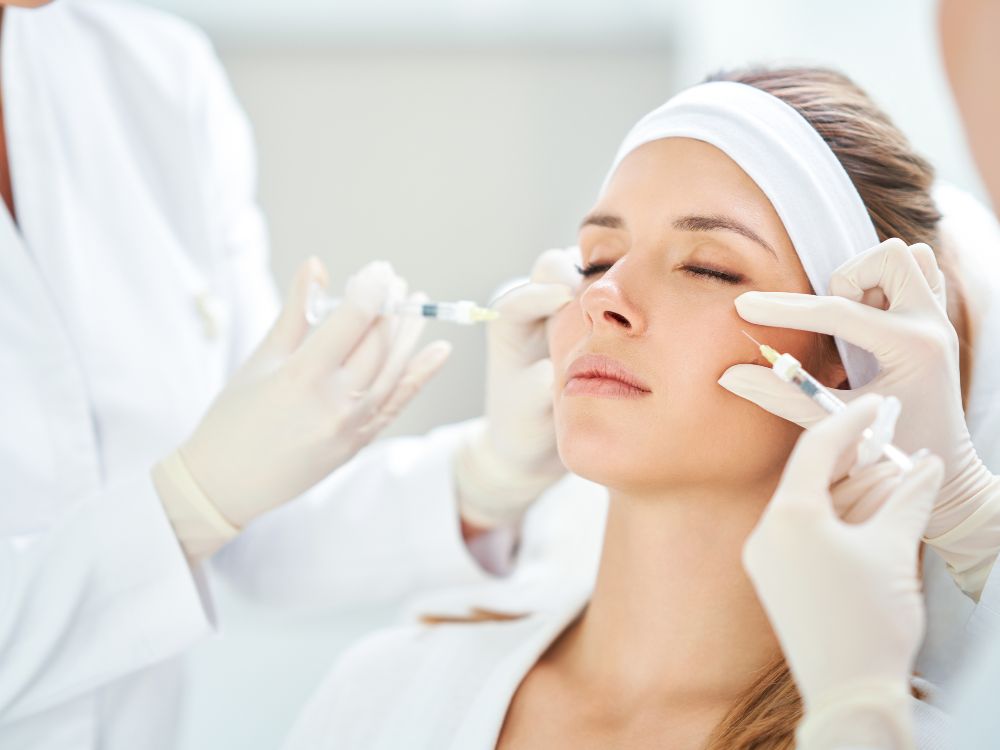
Navigating the Career Path for Aesthetic Registered Nurses
Aesthetic nurses find employment in diverse settings, including dermatology clinics, cosmetic surgery practices, med spas, plastic surgery clinics, private aesthetic nursing practices, and even in some hospital departments focused on cosmetic procedures. These medical fields often allow for regular, predictable schedules with regular hours and minimal night shifts, making it a desirable field for those seeking stability and a balanced work life.
Aesthetic nursing allows for significant versatility, enabling nurses to specialize in areas like skin care, body contouring, Botox injections, laser skin treatments, and more. These environments often offer a more regular schedule compared to traditional hospital settings, which can contribute to a better work-life balance.
Industry Insights and Opportunities
The aesthetic medicine industry is rapidly expanding, with the global market expected to reach approximately $332.1 billion by 2030, driven by increasing consumer demand for minimally invasive treatments.
This growth translates into abundant opportunities for aesthetic nurses. According to a report by the American Med Spa Association, the demand for skilled nurse injectors has grown significantly, with top professionals in high-demand areas earning upwards of $90,000 annually.
Entry-Level Positions and Career Growth Trajectory
- Starting Out: Entry-level positions for aesthetic nurses often require a Registered Nurse license, obtained after passing the NCLEX-RN exam. Initially, entry-level nurses may support more experienced nurses and learn basic aesthetic procedures such as dermal fillers and laser hair removal.
- Career Progression: With experience, aesthetic nurses can advance to roles such as aesthetic nurse injectors or nurse practitioners specializing in medical aesthetics.
Opportunities for Leadership Roles Within Aesthetic Medicine
- Management Opportunities: Experienced cosmetic nurses can move into clinic management roles, overseeing teams, managing patient care standards, and ensuring compliance with health regulations.
- Educational Roles: Many seasoned aesthetic nurses contribute to the field by becoming trainers or educators themselves, both in educational institutions and through professional seminars and workshops. This not only enhances their own knowledge but also supports the development of the industry.
- Entrepreneurial Ventures: Some aesthetic nurses advance their careers by opening their own med spas or private practices, where they can cultivate a client base and offer a personalized suite of services.
Whether you’re just starting out after obtaining your nursing license or you’re an experienced nurse looking to pivot into a more specialized role, the aesthetic industry provides ample opportunities for growth and advancement.
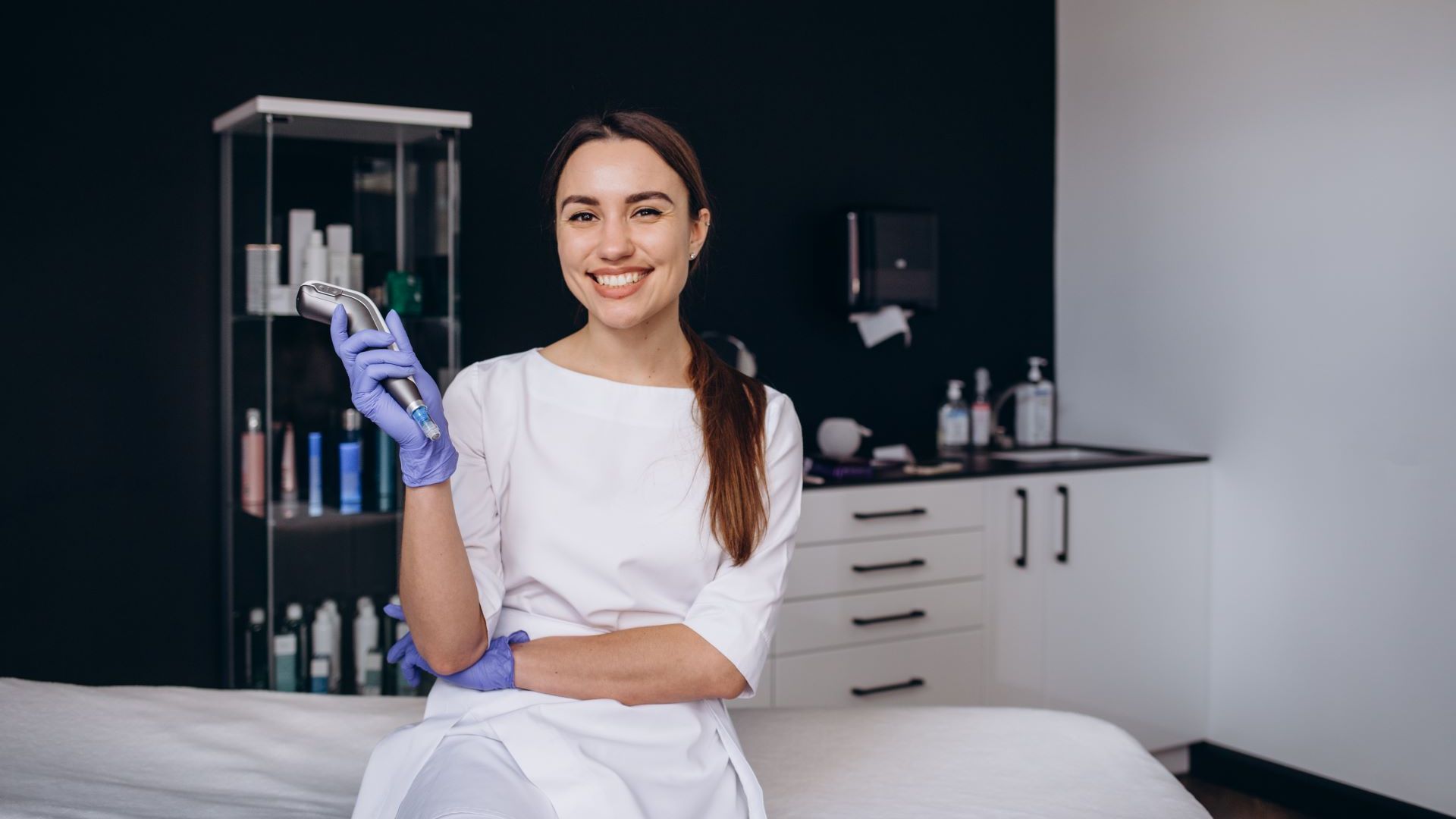
Average Salaries
According to ZipRecruiter, the average salary for an aesthetic nurse in the United States is $89,970 annually, with a range extending from $50,500 at the lower end to $138,500 at the upper end depending on factors such as location, experience, and work setting.
Salaries for aesthetic nurses can vary significantly by state. For example, aesthetic nurses in California can expect to earn an average annual salary of $150,160, while those in Alabama may earn around $75,350. Other states with notable average salaries include Alaska ($116,340), Arizona ($97,680), and Georgia ($95,930).
With the industry’s rapid evolution, aesthetic nurses who stay ahead of trends such as non-surgical body contouring, laser skin resurfacing, and platelet-rich plasma (PRP) treatments are more likely to advance. The Bureau of Labor Statistics forecasts significant job growth for RNs, including aesthetic nurses, with states like California, Texas, and Florida offering the highest number of job opportunities.
Moreover, the demand for aesthetic services is not just limited to traditional settings. Aesthetic nurses with entrepreneurial spirits are founding their own practices and mobile services, providing treatments in a variety of settings from private offices to clients’ homes. The median salary for aesthetic nurses venturing into private practice can exceed the average, especially when coupled with effective business management and marketing strategies.
Additional Reading: Curious to learn more about salaries in the field of aesthetic nursing? Check out Unveiling the Earnings: What to Expect from an Aesthetic Medicine Salary.
Aesthetics Nurse Specialties
The job outlook for skincare professionals, including Aesthetic Nurses, is positive. The number of jobs available to skincare professionals was around 80,500 in 2021 and is expected to increase by at least 13,400 jobs over the next decade. This growth is indicative of the expanding demand for aesthetic services and the vital role of ARNs within the sector.
The career landscape for Aesthetic Registered Nurses is robust, with a strong outlook and opportunities for advancement through additional training and certification. Those entering this field can expect a rewarding career with the potential for significant earnings, especially in high-demand areas and specialized settings.

Training with Aesthetics Medical Training: Where Excellence Meets Accessibility
Aesthetics Medical Training is dedicated to reshaping the landscape of healthcare through high-quality education and training in medical aesthetics. Our mission is to empower licensed medical practitioners, including nurses, physicians, and nurse practitioners, by providing them with the knowledge and skills necessary to excel in a career in aesthetics.
Structured Learning for Comprehensive Development
Our courses are meticulously designed to offer a comprehensive learning experience. The curriculum encompasses:
- A wide range of aesthetic treatments and procedures, including dermal fillers, laser hair removal treatments, non-surgical body contouring, and facial plastic surgery techniques.
- Theoretical knowledge underpinned by practical applications, ensuring that learners can apply concepts in real-world settings.
- Modules tailored for different experience levels, from novices to seasoned professionals, facilitating a deep understanding of cosmetic nursing, aesthetic nursing roles, and dermatologic procedures.
Become an Aesthetic Nurse Injector
Enrolling in our AMT courses opens a gateway to numerous benefits for healthcare professionals:
- Acquisition of New Essential Skills: Learn the latest techniques and technologies in aesthetic treatments, enhancing your ability to provide quality, evidence-based clinical care.
- Knowledge Expansion: Delve into the intricacies of aesthetic medicine, from direct patient care and medical screening to advanced cosmetic treatments and skin rejuvenation techniques.
- Earning CEUs: Our courses are accredited and designed to help you earn Continuing Education Units (CEUs), which are crucial for maintaining licensure and staying competitive in the healthcare field.
Our goal is to bridge the gap between traditional medical education and the specialized demands of the aesthetic industry, ensuring that graduates are ready to excel in the exciting field of cosmetics.
Aesthetics Medical Training offers flexible payment options to reduce financial barriers, making education more accessible to a broader range of aspiring professionals. The program is led by a master educator with over 23 years of experience in the aesthetic field, providing students with unmatched expertise and mentorship.
Upon completion of the courses, students undergo a certification process that tests their knowledge and skills in real-world scenarios. This aesthetic certification is not just a formal recognition but a gateway to exciting career opportunities in medical aesthetics.
Training with Aesthetics Medical Training is not just about acquiring new skills; it’s about transforming careers and enhancing the quality of patient care in the aesthetic medicine industry. Contact us today and reach your potential!
